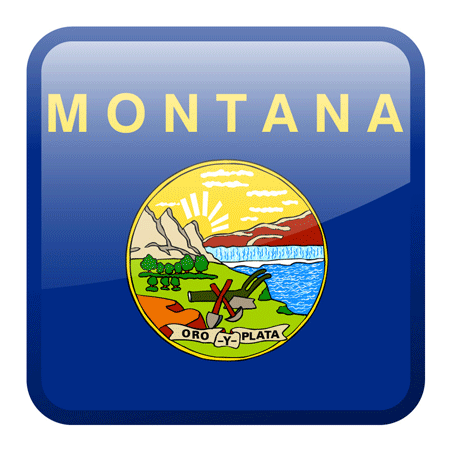Montana Marriage Records
What Are Montana Marriage Records?
Montana marriage records contain information about two people’s big day. There are marriage licenses, which contain application information for the marriage, and then the actual marriage certificate that documents the names of the spouses, their parents, occupations, and other pertinent information such as the date of the marriage. Montana has a written process to obtain marriage records from the Montana government which is a little different than other states. A third party website is often your best bet to get accurate copies/results about Montana marriages.

Purposes Of Montana Marriage Records
A few common reasons for searching marriage records include:
– Genealogy research where marriage certificates lead to new information about family members
– The decision to buy a house jointly with a spouse… in some cases, a realty company will seek marriage records
– Curiosity because sometimes it’s nice to see your own information online
– Curiosity because sometimes you need to know if the person you’re interested in dating was ever married or even more unsettling, still married
These reasons for searching for Montana marriage information are all valid and have been used in the past. You can get official copies of these records from the government vital records website by requesting them through the mail (for a fee) or you can go to a popular third party website that has marriage records from all 50 states.
How To Search Montana Marriage Records
The Internet has revolutionized the way Americans find public records. Thanks to these public records, many third party websites can offer you your own marriage records or the marriage records of others without even having to charge a fee. Others will charge a fee, especially for hard copies of any official documents.
Searches are a breeze. You simply type in the first and last name of a spouse and you’ll be able to instantly see results for that particular marriage record. Some people need a copy of the marriage license, which showed someone applied to marry, and others will need official copies of a marriage certificate, which documents the vital information on the day of the marriage. These are public, legal documents that will come in handy, especially if you plan to change your name after the marriage. In some cases, you will be requested to provide a copy of your marriage certificate. If you’ve lost it, there’s a good chance you’ll be able to find it on a third party website offering these records.
Marriage searches are very helpful for genealogy work as well, giving you a written document that shows you the dates your ancestors married and began their families. You’ll be able to glimpse a record from the past that ties you to your heritage and leads you deeper into your genealogy work. Others will find these records helpful simply for curiosity’s sake. Whatever your reason for searching for Montana marriage records, the great news is that they’re out there and easily attainable.
Research Marriages In Any State
- Alabama
- Alaska
- Arizona
- Arkansas
- California
- Colorado
- Connecticut
- Delaware
- Florida
- Georgia
- Hawaii
- Idaho
- Illinois
- Indiana
- Iowa
- Kansas
- Kentucky
- Louisiana
- Maine
- Maryland
- Massachusetts
- Michigan
- Minnesota
- Mississippi
- Missouri
- Nebraska
- Nevada
- New Hampshire
- New Jersey
- New Mexico
- New York
- North Carolina
- North Dakota
- Ohio
- Oklahoma
- Oregon
- Pennsylvania
- Rhode Island
- South Carolina
- South Dakota
- Tennessee
- Texas
- Utah
- Vermont
- Virginia
- Washington
- West Virginia
- Wisconsin
- Wyoming
Before Comments
Please be advised that the information accessed through SearchQuarry.com searches may not always be accurate or current, as we neither generate nor authenticate the data provided via our service. The reliability and precision of information are primarily contingent upon diverse public sources from which data is compiled. By utilizing SearchQuarry.com, you acknowledge your acceptance of the terms delineated in the SearchQuarry.com terms of service and our privacy policies. Information acquired via SearchQuarry.com must not be utilized for unlawful purposes such as stalking or harassing individuals, or scrutinizing public figures or celebrities. Individuals who contravene these directives may be subject to both civil and criminal legal proceedings and sanctions. It is explicitly stated that SearchQuarry.com does not function as a "consumer reporting agency" as defined by the Fair Credit Reporting Act ("FCRA"), and therefore, does not furnish "consumer reports" pursuant to the FCRA. SearchQuarry.com strictly prohibits the utilization of information garnered from search results (a) for discriminatory practices against any consumer; (b) for assessing a consumer's eligibility for personal credit, insurance, employment, housing, or government licenses or benefits; or (c) in any other manner that may impact a consumer's economic or financial status or standing.


Comments
Last Updated: 2017-08-11